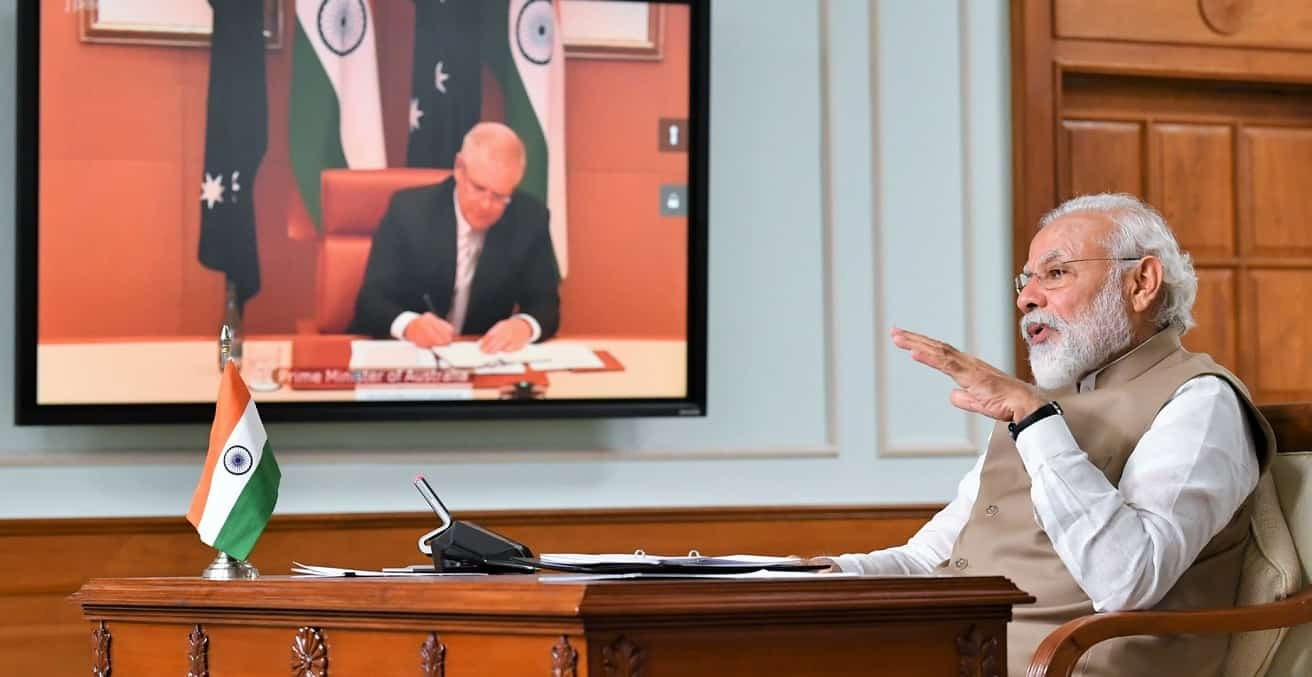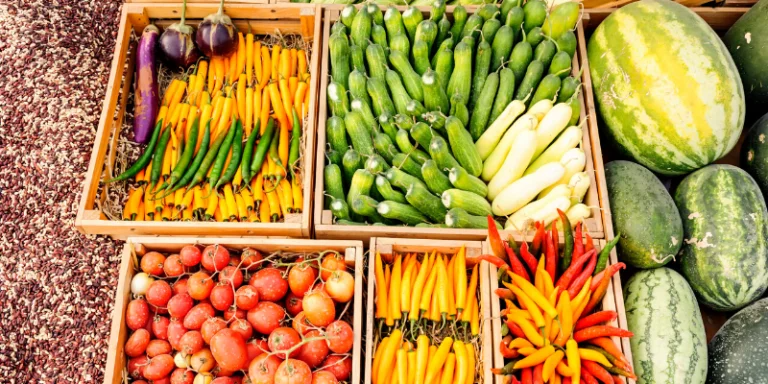What Australia’s Partnership with India Means for Importers and Exporters
October 28, 2022 Uncategorized

After a ‘virtual summit’, Australia and India have now signed a new Comprehensive Strategic Partnership. The Partnership will have an impact on importers and exporters who trade goods and services with India and offers a range of new opportunities.
What is the Comprehensive Strategic Partnership between Australia and India?
A Joint Statement on the Comprehensive Strategic Partnership between the Republic of India and Australia – otherwise known as the Comprehensive Strategic Partnership (CSP) – was announced by Prime Minister Scott Morrison on 4 June 2020.
This declaration of co-operation aims to take the relationship between the two nations to a new level, shaping a way forward for collaboration on education, science, research, infrastructure, defense, maritime issues, and importantly for importers and exporters – international trade.
Scott Morrison reached the agreement with India’s Prime Minister, Narendra Modi, in line with India’s increasing engagement in the Indo-Pacific region. This comes as China’s influence rises with Beijing’s large-scale ’Belt and Road Initiative’ aiming to establish the People’s Republic as an international economic and infrastructure leader. Furthermore, the agreement follows China’s decision to impose a significant tariff on Australian barley.
The Prime Minister said that by signing the CSP, India and Australia are embracing a “vision for open, free, rule-based, multilateral systems” in the region. It is the fourth strategic partnership Australia has reached in the Asia-Pacific region, following Singapore, China and Indonesia.

Prime Minister Narendra Modi and Australian Prime Minister Scott Morrison during the first India-Australia virtual summit on 04/06/2020
How will the CSP affect international trade with Australia?
Part VII of the CSP is headed “Economic Cooperation: A More Prosperous Shared Future” and is the key section that importers and exporters who operate with the Indian market should observe.
Further discussions for a bilateral agreement
The statement importantly proposes to re-engage in discussions for a bilateral Comprehensive Economic Cooperation Agreement (CECA).
Negotiations over a CECA between India and Australia commenced in 2011, and nine rounds of talks followed – the last one occurring five years ago in September 2015. The talks have since been delayed due to disagreements over market access to agriculture and dairy, whilst negotiations over a regional partnership between ASEAN member states (including Australia and India) went underway.
The decision by the two leaders to engage in a new round of CECA talks is a welcome development for importers and exporters. India is Australia’s fourth-largest trading partner trading goods and services worth AUD$29 billion [1]. An agreement to promote further economic interconnectivity, including market access for key industries, will go a long way to cementing the two nations’ economic future.
John Orr of Premium Grain Handlers, a Western Australian-based grain exporting business, commented on the rich market opportunity in India for Australian grain, explaining “As their economy strengthens, we see strong possibilities to increase the tonnages that we supply into that region”. The market has become more sophisticated over the years, with Orr reporting “growth in new products like oats, wheat and malting barley for beer consumption” – provides ample opportunity for Aussie grain.
There are obstacles to obtaining such market access. Of particular concern was India’s decision in 2019 to exit negotiations for the Regional Comprehensive Economic Partnership (RCEP) between ASEAN member states. India was the only country that decided not to join, which put an unexpected blockage to the market access Australian exporters were hoping for, especially in agriculture. India is also hesitant to reduce tariff levels, whilst skeptical towards foreign investment (giving the notice to terminate nearly 60 investment treaties with other countries, including unilaterally terminating Australia’s bilateral investment treaty in March 2017).
However, Part IX of the CSP does recognise that agriculture “is an important pillar of the Australian and Indian economies”. It recognised that both countries had made “some progress” on market access issues in the agricultural sector and that there was a “strong commitment to continue the negotiations”.
Further CECA negotiations will hopefully address these important bilateral and regional issues, resulting in benefits for Australian business.Australian businesses looking to tap into India’s agricultural market should therefore keep a close watch on how Indian-Australian discussions evolve.

“Make in India” program and the Smart Cities initiatives
The CSP expresses interest in “ensuring that Australian businesses are aware of opportunities through India’s ‘Make in India’ program and the Smart Cities initiatives and that Indian companies are aware of investment projects in Australia”.
Modi launched the ‘Make in India’ program in 2014 – the aim being to promote Indian manufacturing for goods to be sold around the world (including in industries like construction, defense, electrical machinery, textiles, leather, mining, tourism and more). Complete foreign direct investment is now allowed in most of these industries (apart from defense, space and the news media). Modi said that Australia was a “natural partner” in such an initiative.
In October 2019, the Australia India Business Council launched a ‘Make in India Focus Group’ offering some advantages including potential government-to-business and project opportunities.
Similarly, Australian exporters should look closely for potential opportunities in India’s ‘Smart Cities’ project. India’s Government has highlighted infrastructure development as an integral policy objective due to the potential to boost economic growth. They’ve stated that that they’ll need to invest between US$1.2 and US$2 trillion in infrastructure development over the next few decades. The initiatives of this large-scale project will require investment in ‘smart energy’, ‘smart water’, ‘smart housing’, ‘smart waste management and more.

With Australia having now committed to promoting India’s Smart Cities initiative through the CSP, Australian exporters in those relevant industries should keep an eye on what developments arise to promote economic cooperation.
Growth of Micro, Small and Medium Enterprises
Part VIII of the CSP is headed ‘Innovation & Entrepreneurship’, which expresses the commitment of both India and Australia to “continue fostering collaboration between entrepreneurs, developing innovative products and promoting start-ups and incubation centers”.
They have further committed to enhancing co-operation “in the Micro, Small and Medium Enterprises (MSME) sector and decided that major industries of both countries should endeavor to integrate the SME/MSMEs of the other country into their supply chains, thereby diversifying bilateral trade”.
This is welcome news for importers and exporters in the SME sector. Exporting your goods and services is an effective way to encourage business growth, so keep a close eye on India for opportunities to engage in bilateral trade. According to the Financial Express, an Indian English-language news outlet, almost half of India’s exports were due to MSMEs in the 2018-19 financial year. As such, the CSP signals continuing future opportunities for MSMEs in both nations.
Further questions?
If you have further queries or concerns about how the new CSP will impact your international trade, please don’t hesitate to reach out to us.
Our import and export experts at International Cargo Express have had decades of combined experience in advising businesses on navigating through international trade in challenging geopolitical climates. Feel free to ring us or request a quote.
Request A Quoteor call us on 1300 227 461
Recommended For You

We Consult. We Plan. We Deliver.
- CONSULT – We discuss your specific needs.
- PLAN – We develop a bespoke tailored plan that is cost-effective & efficient.
- DELIVER – We manage your shipment and keep you updated from beginning to end.


